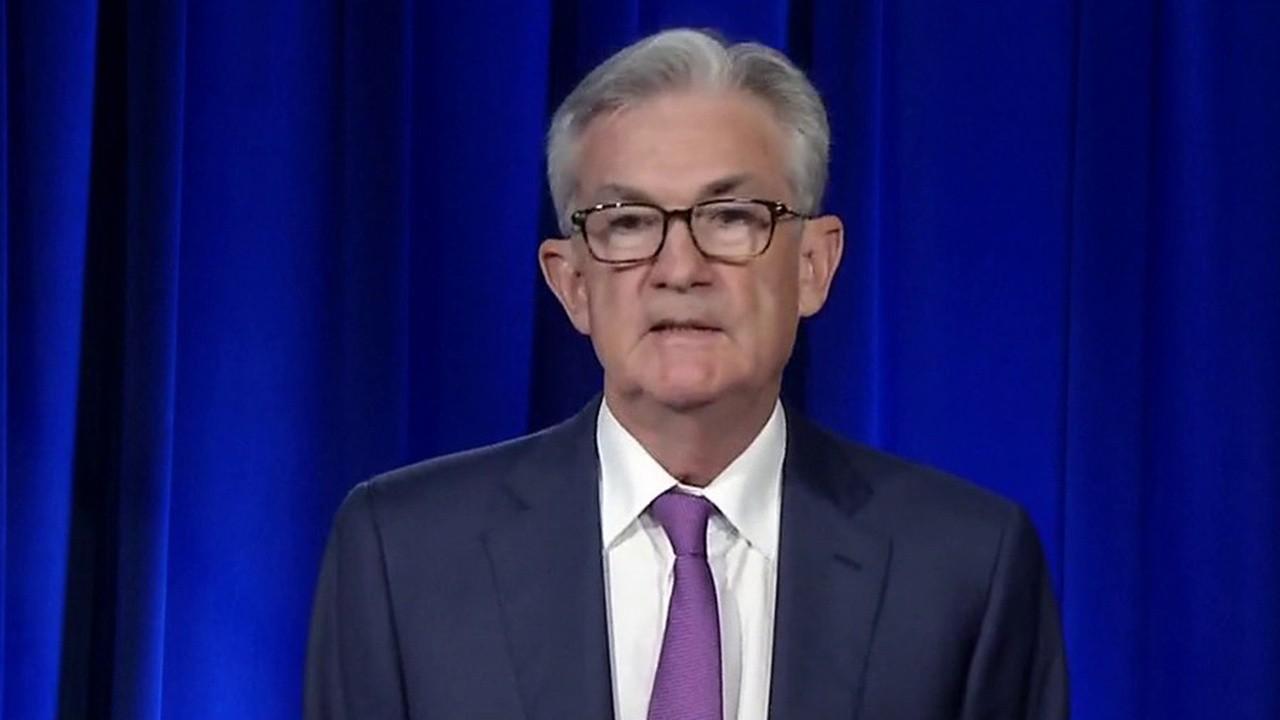Fed underscores support for economic recovery threatened by coronavirus resurgence
Previous guidance from the Fed's June meeting shows that policymakers expect interest rates to remain near zero through 2022
The Federal Reserve on Wednesday signaled that it would continue taking aggressive action to support the U.S. economy during the coronavirus pandemic as a spike in cases and renewed restrictions on certain businesses threaten to derail the nation's gradual recovery.
The U.S. central bank, as widely expected, held the benchmark federal fund rate at a range between 0 percent and 0.25 percent, where it has been since mid-March. The Fed reiterated previous guidance that rates will remain near-zero "until it is confident that the economy has weathered recent events and is on track to achieve its maximum employment and price stability goals."
FED'S POWELL SAYS US ECONOMY MAY NEED MORE POLICY HELP TO AVOID 'PROLONGED' RECESSION
Previous guidance from the Fed's June meeting shows that policymakers expect interest rates to remain near zero through 2022.
Policymakers also pledged to maintain the central bank's purchases of Treasury and mortgage bonds each month. Over the past four months, the Fed has injected nearly $2.8 trillion into the economy, an unprecedented amount, and its balance sheet has surged to nearly $7 trillion.
The Fed noted the economy has strengthened since March and April, when American life came to a grinding halt to mitigate the spread of COVID-19. But it warned the virus will continue to dictate the speed of the nation's turnaround.
“The ongoing public health crisis will weigh heavily on economic activity, employment, and inflation in the near term, and poses considerable risks to the economic outlook over the medium term,” the policymakers said.
NEARLY HALF OF US JOBS LOST TO CORONAVIRUS COULD BE GONE PERMANENTLY, POLL FINDS
Chairman Jerome Powell previously warned a complete recovery hinges on control of the virus.
"Until the public is confident that the disease is contained, a full recovery is unlikely," he said in June while testifying before lawmakers.
A recent spike of COVID-19 infections and new shutdown measures in several U.S. states, including Florida and California, have raised fears the recovery is stalling. Last week, the number of Americans filing for unemployment benefits rose for the first time in 16 weeks, while the number of confirmed COVID-19 cases in the country surged past 4 million.
"The labor market has a long way to go to recover," Powell told reporters during a virtual press conference on Wednesday. "Even with two very strong months of job creation, 7.5 million jobs between [May and June], we still have 14 million people unemployed. It's a long way to go."
The renewed threat of another round of layoffs is emerging just as an extra $600 a week in unemployment benefits, part of the $2.2 trillion CARES Act passed in March, is expiring. Democrats and Republicans kickstarted negotiations this week on another virus relief package, which could include a second stimulus check and the extension -- but substantial reduction -- of just-expired unemployment aid.
FED OUTLOOK TURNS GLOOMIER AS VIRUS SPREADS
The Fed has already taken a range of extraordinary actions to support the economy, including slashing interest rates to near-zero in March, purchasing an unlimited amount of Treasurys (a practice known as quantitative easing) and launching nine lending facilities to ensure that credit flows to businesses and Wall Street banks.
On Tuesday, the central bank said it would extend seven of those programs, which were previously set to expire at the end of September, through the end of the year.
Most analysts expect the Fed's next economy-buffering move is to provide specific guidance about what conditions -- like in unemployment and inflation -- it wants to see before hiking interest rates, a tool known as "forward guidance." The central bank's next meeting takes place in September.
"The focus now shifts to the FOMC’s September meeting, when investors might expect more action, which could include more explicit forward guidance," said Jason Pride, chief investment officer of private wealth at Glenmeade.
Some Fed members have indicated they'd like to specify how long near-zero rates might last, alerting markets that after that period, they might be raised again, according to recent meeting minutes.




















